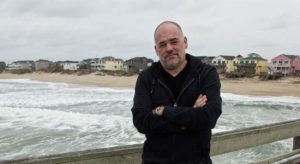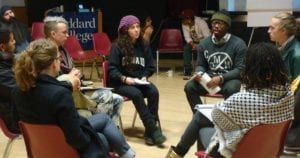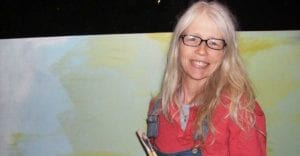
“But there are times when the little cloud spreads, until it obscures the sky. And those times I look around at my fellow men and I am reminded of some likeness of the beast-people, and I feel as though the animal is surging up in them” –The Island of Doctor Moreau
I’m thinking this morning of Herbert George Wells, the science-fiction writer and prophetic humanist born 150 years ago this week. As a fifth-grader I read many of Wells’s novels, some twice or thrice. Several were bound together in a thousand-page hardcover volume my dad gave me for my ninth birthday. Thirty years later I seem to remember their plots more vividly than I recall books I read last month. When I consider my affinity for stories whose relentless forward drive somehow holds steady even as the characters converse at length about big ideas, I can’t help but blame Wells.
My father, who drove a taxi based at the Knoxville airport, didn’t want me reading science fiction. His favorite writers were Bellow, Faulkner, Dostoyevsky. Waiting long hours for a five-dollar trip across the highway, he would reread the same Russian epics that he persuaded me to take up at an age when I’d have preferred Have Space Suit—Will Travel. Not that he banned Heinlein, he just shifted his demeanor to reflect a certain disappointment in my lowbrow tastes. Wanting to please, I trudged through tome after dreary tome by Dickens and Tolstoy. Until we found our compromise in Wells, it seemed to me there were two kinds of stories: thrilling ones set in the future about spaceships and time travel, and boring ones set in the past and present, concerning people and their dull beliefs.
You don’t need more than a few words to summarize the plots of most H.G. Wells novels. A shipwrecked man lands on an island run by a mad scientist; a time machine goes missing; Martians invade London. Yet one can’t page through these stories before finding passages that seem to pertain to the 2016 election: “Advertising is legalized lying.” “Moral indignation is jealousy with a halo.” “Human history becomes more and more a race between education and catastrophe.” And my favorite, “Civilization is in a race between education and catastrophe. Let us learn the truth and spread it as far and wide as our circumstances allow. For the truth is the greatest weapon we have.”
I don’t remember thrilling at age nine at the moral truth of these ideas. I know the plots gripped me, so I must have taken in the lines I quote here. Perhaps today I agree with them more than I would have in a world without H.G. Wells. I do recall my sense of wonder at his idea that we’re already capable of traveling in time. We do it every day by means of hope and memory, he argues in The Time Machine, in a passage that helped persuade me to become a novelist.
So here’s wishing a happy 150th to the man George Orwell called “too sane to understand the modern world.” I’ll close with two more quotes I find apt these days.
“Now whenever things are so that a lot of people feel they ought to be doing something, the weak, and those who go weak with a lot of complicated thinking, always make for a sort of do-nothing religion, very pious and superior, and submit to persecution and the will of the Lord.” —The War of the Worlds
“Very much indeed of what we call moral education is such an artificial modification and perversion of instinct; pugnacity is trained into courageous self-sacrifice, and suppressed sexuality into religious emotion.” —The Island of Doctor Moreau







